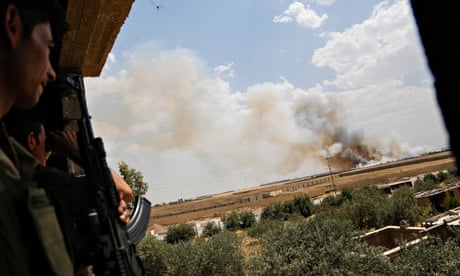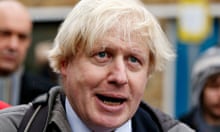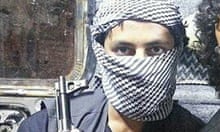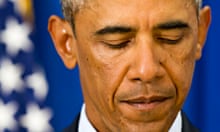Flush with looted weapons, buoyed by sweeping gains in Syria and eager to shock, Islamic State militants have seized four more foreign hostages near Aleppo in recent days, taking to more than 20 the number of foreigners they now hold.
The latest captives, two Italian women, a Dane and a Japanese national, were seized in or near Syria's largest city. All held are either reporters, photographers or aid workers taken near Aleppo or Idlib. They have been subsequently moved to Raqqa, the Isis stronghold in north Syria.
The abductions have controversially proved good business for Islamic radicals. In the past six months at least 10 hostages, including a Dane, three French nationals and two Spaniards, were freed after lengthy negotiations with captors, who demanded ransoms. Some organisations have insisted on information blackouts about nationals still being held.
One former hostage said the suspected killer who appeared in the recent video, apparently murdering the US journalist James Foley, was one of three Britons who had guarded him in Raqqa. He said the man had been responsible for negotiating hostage releases, dealing with families of captives via email.
Attention will now turn to the captives still in Isis hands. Steven Sotloff, a freelancer who had contributed to Time magazine and Foreign Policy, was kidnapped a year ago near the Syrian-Turkish border. According to the video of Foley's death, Sotloff's fate depends on whether the US continues its aerial campaign in north Iraq, which has driven Isis fighters back from the key Mosul dam.
There is no sign of a let-up in US air strikes despite the Isis threat. "We continue to conduct strikes in Iraq," said a Pentagon spokesman.
Though Islamic State (Isis) has been pummelled in Iraq in recent days, in Syria the group is not on the back foot. Using weapons seized from the fleeing Iraqi army, the extremists are back with a vengeance, seizing 12 villages to the north of Aleppo in the past week alone and once more menacing the city.
The fate of Aleppo will largely determine who prevails in Syria's devastating civil war and what remains of the country.
Masrour Barzani, chancellor of the Kurdish region security council, said: "They have five divisions' worth of Iraqi military weapons, all of them US-supplied, that they are using to turn on communities that are outgunned, and increasingly outmanned."
Hisham al-Hashimi, an Baghdad-based expert on the group, said: "They are around 50,000 strong on both sides of the border."
Kurdish officials say that the overall numbers are slightly less. Both Kurds and Iraqis agree that Isis had a recruiting boom in July. The group is thought to have successfully lured more than 6,000 new cadres in that month alone. Kurdish and Iraqi officials say the extremists' appeal stems from their capacity to deliver outcomes even through ruthless means that are at odds with values held by most Sunni communities.
The large numbers of foreign fighters are increasingly holding sway in many areas, enforcing hardline Islamic law and dispensing punishment with impunity.
A resident of the Syrian town of Azaz, which borders the Turkish town of Killis, said Isis members were now only about six miles away, after being ousted in January. "You could have used my name until last week," he said. "But they're advancing towards us in armoured trucks they stole from the Iraqis. We can't fight them."
Organised as Isis less than 18 months ago, the group had previously worked hard to cultivate a reputation as an all-powerful juggernaut. But as Iraq has collapsed and as Syria disintegrates, their success has become a self-fulfilling prophecy.
The return of the jihadists is likely to sound the death knell for the anti-regime opposition in north Syria. Already outgunned by the Syrian air force, the opposition has been desperately struggling to keep a supply line open to the north. Meanwhile, the regime and its backers, principally Hezbollah, have been slowly surrounding the city from the north-west and north-east.
But as they try to close the circle, Isis is trying to beat them to Aleppo from a stronghold 30 miles east of the city that it has controlled since late last year. And further east, past Raqaa, Isis launched an attack on Wednesday, on the Tabqa air base, the last regime base in the east of the country. If, as expected, the base falls, Isis will have a clear run to Syria's fourth city, Hama.
"This will be just as significant as Isis taking Anbar and Mosul," a western diplomat said. "What we are about to see could be the sum of all our fears."
US air strikes over the past fortnight have halted Isis's push north to the Kurds, but only after minority communities once protected by the Iraqi state had been "cleansed" along the way. West towards Aleppo and east towards Baghdad there appears to be no stopping what is now the world's best armed and fastest growing terror group as it imposes its rule across an increasingly irrelevant border.
Nor do there appear to be any limits to what Isis will do to terrorise its foes. The apparent beheading of Foley has sparked a wave of global fear and revulsion like that generated by al-Qa'ida in Iraq nearly 10 years ago, when orange-clad captives were murdered by the predecessors to Isis.
Less than a generation later, grainy images of condemned men in dank, dark, rooms have been replaced by slick productions filmed from multiple angles, which vividly showcase every horrific detail.
"The shock value is essential to what they do," said a western diplomat. "And it's working for them."








